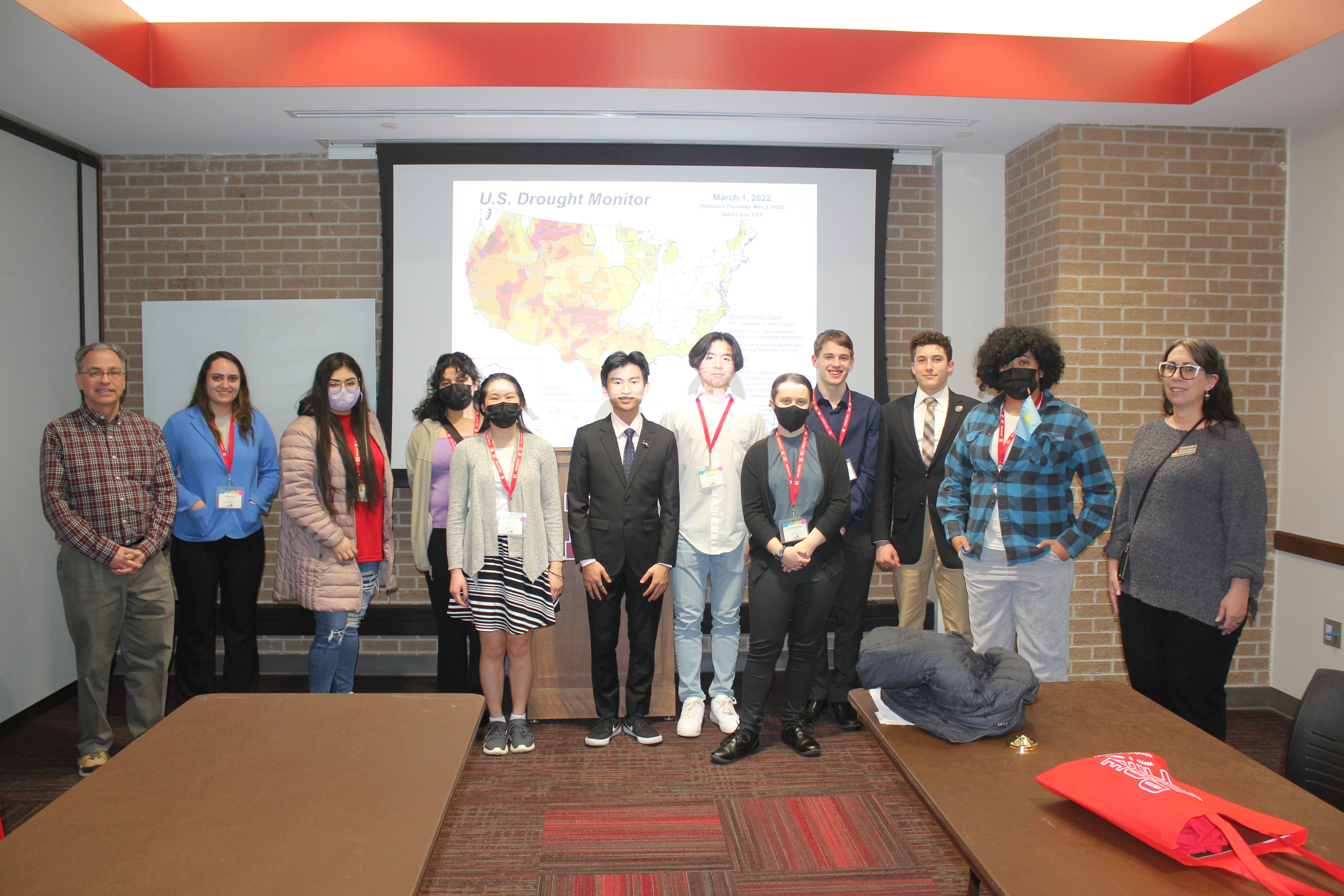
They began by ranking natural disasters. Which worried them most? Hurricane, fire, flood, earthquake, tsunami or drought? Then they explored the billions of dollars and losses of life associated with different disasters over time and around the world. As it turns out, when epidemics are added to the picture, deaths from the Covid pandemic dwarfed the others.
The disaster talk, led by Michael J. Hayes, a climatologist at the University of Nebraska-Lincoln School of Natural Resources and former director of the National Drought Mitigation Center, was one of several choices available to 40 young scholars. The high school students converged on UNL’s East Campus March 7 to present papers and talk with experts, part of the World Food Prize Foundation’s Nebraska Youth Institute.
If you live in Nebraska, tsunamis aren’t a big concern, one student pointed out.
Having lived in San Diego, earthquakes aren’t really that scary, another said.
On the other hand, tornadoes happen all the time in Nebraska, but rarely cause too much loss of life, in part due to effective early warning systems, Hayes and the students agreed.
What should people do? Prepare.
After weighing the relative risks of individual hazards, the discussion turned to climate change, which, Hayes said, underlies and intensifies weather-related hazards such as heatwaves, droughts, hurricanes and flooding. And what does all of it have to do with food security? Everything.
Hayes and Deborah Bathke, a climatologist at the drought center, helped the group step back and see the bigger picture: Crop growth happens best under certain conditions related to precipitation, temperature and soil moisture. Flooding, high winds and hail can all damage crops or make fields unsuitable. And the world is interconnected. Drought or conflict in grain-exporting countries on the other side of the world can affect food prices for everyone, with the greatest hardship falling on people with the fewest resources.
Students left the session thinking about what they could do as individuals, as citizens, and as potential researchers and advocates. Their day also included a presentation from the Husker Pantry on food insecurity among college students, and a demonstration of food preparation from the Meat Processing Lab.
This year marked the first time in three years that the Nebraska Youth Institute could convene in person, said Renee Donner, recruitment coordinator for the Department of Agricultural Leadership, Education and Communication, in UNL’s College of Agriculture Sciences and Natural Resources (CASNR), and organizer of the Nebraska Youth Institute.
To attend the institute, students had to research and write a paper on a food issue of their choosing, for any part of the world. Donner said their essays covered every inhabited continent as well as the islands of Oceania, focusing on topics such as malnutrition, education, water scarcity, water quality, and conflict.
Donner noted that having class time to focus on the project helped. Shiela Sievert, a social studies teacher at Pius X High School, incorporated the institute into her classroom. Bailey Feit, program coordinator for the CASNR-Lincoln Public Schools focus program, worked with Sgt. Michael Miller to incorporate the program into his curriculum for the junior Reserve Office Training Corp (ROTC) program at Northeast High School. Student participants receive a $500 scholarship to attend CASNR and qualify for additional participation in Borlaug Foundation activities. Top participants from each state institute go on to a global event with students from all over the world, which is held in Iowa.
CASNR has been hosting the World Food Prize Nebraska Youth Institute since 2007. The World Food Prize Foundation was established by Norman Borlaug, who won the Nobel Peace Prize in 1970 for his scientific work to end global hunger.
To learn more about how to participate in the 2023 Institute, visit https://worldfooprize.org/nebraska
More details at: https://drought.unl.edu